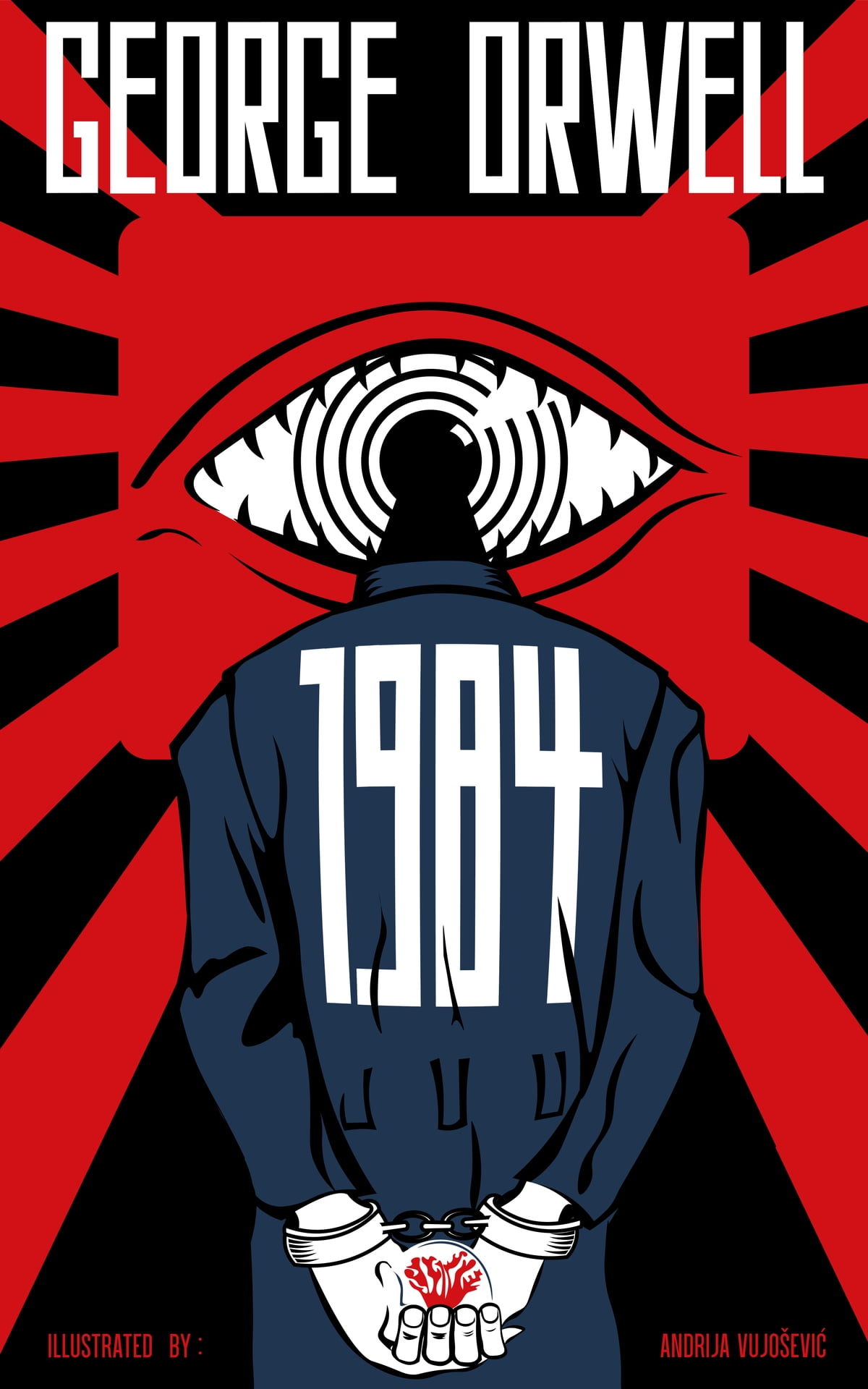We are from Ukraine ![]()
Book Review: "1984" by George Orwell
George Orwell’s “1984” is an iconic and chilling masterpiece of dystopian literature that continues to resonate with readers, serving as a stark warning about the dangers of totalitarianism and the erosion of individual freedom. Written by the British author and essayist George Orwell, this novel presents a nightmarish vision of a future society controlled by a powerful and oppressive government, where truth and reality are constantly manipulated.
George Orwell, a writer with a keen sense of political and social issues, drew from his own experiences and observations to craft a narrative that remains hauntingly relevant in today’s world. Born in 1903, Orwell lived through the tumultuous events of the 20th century, including totalitarian regimes, war, and propaganda, all of which deeply influenced his writing.
Reasons To Delve Into “1984”:
Huxley masterfully constructs a world where happiness is manufactured, desires are satiated instantaneously, and individualism is suppressed. It forces readers to question our own society’s values and the cost of unbridled technological progress.
Societal Reflection
Orwell’s “1984” vividly portrays a dystopian world where the ruling Party stifles dissent and exercises complete dominion over every facet of citizens’ existence. It stands as a harrowing mirror reflecting the severe perils inherent in unrestrained governmental authority and pervasive surveillance. This cautionary tale compellingly prompts readers to confront the sobering reality of trading personal freedoms for the deceptive promise of safety in a world where truth itself is a malleable commodity.
Character Depth
The protagonist, Winston Smith, stands at the heart of Orwell’s narrative, grappling with the relentless suppression of independent thought in a society where it’s a criminal act. His journey serves as a compelling exploration of the indomitable human spirit, showcasing resilience and the quest for individuality amid the oppressive forces of an authoritarian regime. Winston’s struggle becomes a poignant and relatable reflection of the enduring human yearning for freedom and self-expression, even in the darkest of circumstances.
Philosophical Inquiry
“1984” is a profound exploration of truth, reality, and language manipulation. Orwell’s concept of “Newspeak” and the Party’s paradoxical slogans like “War is Peace” and “Freedom is Slavery” delve deep into the malleability of language and its power to shape perception. These elements invite readers into a thought-provoking philosophical contemplation about the nature of truth and the potential for authoritarian regimes to control and distort reality through linguistic manipulation, making it a timeless and unsettling aspect of the novel.
Prescient Predictions
Despite being written in 1949, George Orwell’s insights in “1984” have proven remarkably prescient in today’s world of pervasive surveillance, state-sponsored propaganda, and the manipulation of truth. Orwell’s warning about the erosion of privacy, the influence of propaganda, and the dangers of a surveillance state feels eerily relevant in an era of ubiquitous surveillance cameras, the spread of fake news, and political manipulation, highlighting the enduring relevance and foresight of his work.
Literary Merit
George Orwell’s writing in “1984” is characterized by its crisp and unflinching prose, elevating the novel to the status of a literary masterpiece. His ability to craft vivid and evocative imagery, including the omnipresent figure of Big Brother, adds to the enduring impact of the story. These literary elements not only serve to captivate readers but also underscore the lasting significance and resonance of “1984” in the realm of literature and social commentary.
Conclusion
George Orwell’s “1984” is not merely a work of fiction but a stark warning about the fragility of freedom and the corrosive power of authoritarianism. In a world where surveillance and manipulation continue to shape our lives, this novel remains a vital touchstone for understanding the potential consequences of unchecked government control. As we navigate our own complex sociopolitical landscape, “1984” stands as a stark reminder that vigilance and the defense of individual liberty are paramount. It challenges us to confront uncomfortable truths and reaffirms the enduring importance of defending our freedoms in the face of oppression.

